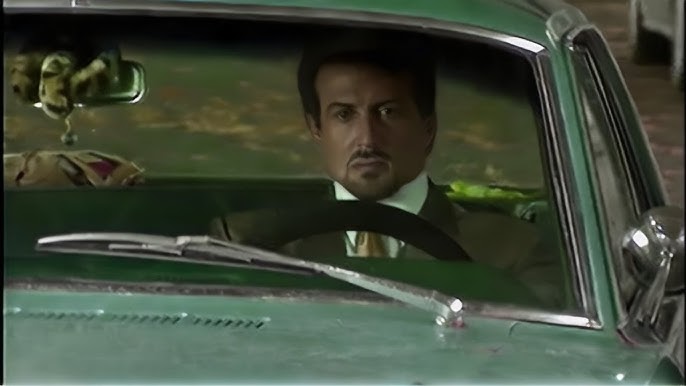Get Carter (2000)
“Get Carter” (2000) is a modern neo-noir crime thriller directed by Stephen Kay, starring Sylvester Stallone as Jack Carter. The film is a remake of the 1971 British classic that starred Michael Caine. While the original was set in gritty industrial England, the remake moves the story to contemporary America, giving it a sleek, darker, and more emotional tone. It explores themes of revenge, guilt, and redemption within a world of corruption and organized crime.
The story begins with Jack Carter, a cold, methodical enforcer for a Las Vegas mob. Jack is feared and respected, known for his efficiency and ruthlessness. However, his life takes a personal turn when he learns that his younger brother Richie Carter has died in a supposed drunk-driving accident in Seattle. Despite being estranged from his family and warned to stay out of it, Jack senses something isn’t right and decides to return home for the funeral.
When Jack arrives in the gloomy, rain-soaked city of Seattle, his presence is met with suspicion and tension. His brother’s widow Gloria (Miranda Richardson) and his teenage niece Doreen (Rachael Leigh Cook) are shocked to see him after years of silence. Doreen barely remembers her uncle, and Gloria blames him for abandoning the family. Still, Jack is determined to uncover the truth behind Richie’s death.
As he starts digging, Jack discovers that Richie had ties to the criminal underworld — specifically a local businessman named Cyrus Paice (Mickey Rourke), who operates a shady nightclub and adult entertainment business. Cyrus and his associates, including a slick computer entrepreneur named Jeremy Kinnear (Alan Cumming), are involved in illicit dealings that link back to Richie’s mysterious death.
Jack’s investigation soon reveals a horrifying secret: his niece Doreen was unknowingly filmed in a compromising situation at one of Cyrus’s parties, and Richie was killed after discovering the truth and trying to protect her. Consumed by rage, Jack turns from investigator to avenger, systematically hunting down everyone responsible.

As he exacts his revenge, the line between justice and vengeance blurs. Jack’s brutal methods mirror the life he’s tried to leave behind, and he begins to confront his own moral decay. Along the way, he forms a fragile bond with Doreen, recognizing in her the innocence and hope he lost long ago.
The film’s tone grows increasingly dark as Jack eliminates his enemies one by one, using both cunning and violence. His final confrontation with Cyrus is intense and personal — a brutal showdown that ends with Jack reclaiming a measure of redemption through vengeance.
However, Get Carter closes on a somber note. Just as Jack seems ready to reconcile with his family and possibly change his life, he is ambushed and shot by one of his enemies, dying alone by the water — a fittingly tragic end for a man trapped by his past.
Visually stylish and moody, “Get Carter” (2000) uses Stallone’s understated performance to convey a brooding sense of loss and regret. Though it differs from the original’s gritty realism, it captures the emotional weight of revenge and the cost of violence, offering a reflective, noir-inspired tale of a man seeking redemption in a world without mercy.



